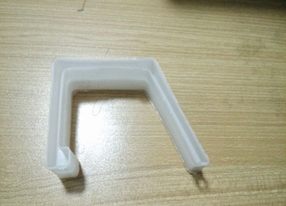Innovative Solutions for Efficient Animal Processing and Hygiene in Slaughter Facilities and Cleaners
Jul . 27, 2024 16:42 Back to list
Innovative Solutions for Efficient Animal Processing and Hygiene in Slaughter Facilities and Cleaners
The Importance of Slaughter Washers and Cleaners in Meat Processing
In the meat processing industry, maintaining high standards of hygiene and sanitation is crucial not only for the safety of the food supply but also for consumer confidence. A significant aspect of this hygiene protocol involves the use of slaughter washers and cleaners. These specialized machines play a pivotal role in ensuring that equipment and facilities remain clean and safe, thus safeguarding public health and ensuring compliance with industry regulations.
Slaughter washers are designed specifically for the cleaning of slaughterhouses, abattoirs, and meat processing facilities. They employ high-pressure water jets, steam cleaning, and sometimes chemical disinfectants to eliminate bacteria, viruses, and other pathogens that may contaminate meat products. Effective sanitation is vital because meat can easily be a conduit for foodborne illnesses if not handled properly. This necessity has driven the innovation and adoption of advanced cleaning technologies in the industry.
The Importance of Slaughter Washers and Cleaners in Meat Processing
Moreover, the design and functionality of slaughter washers are tailored to meet the unique challenges of the meat processing environment. They are built to withstand the rigorous demands of a busy facility, providing robust cleaning capabilities without compromising efficiency. Many modern washers also incorporate automated systems that allow for consistent cleaning processes, reducing the likelihood of human error and ensuring that hygiene standards are met consistently.
slaughter washer and cleaner

In addition to improving sanitation, slaughter washers help meat processing plants comply with food safety regulations. Regulatory bodies, such as the USDA and FDA in the United States, have strict guidelines regarding hygiene and sanitation practices in the food industry. By using slaughter washers, facilities can demonstrate their commitment to these standards, ultimately averting potential fines, recalls, or reputational damage resulting from food safety violations.
Environmental considerations have also led to the development of more efficient slaughter washers. Eco-friendly machines that use less water and energy while still achieving high cleanliness standards are increasingly being adopted. This not only helps companies improve their sustainability practices but also reduces operational costs associated with water usage and waste management.
Furthermore, the investment in quality slaughter washers and cleaners is often seen as a long-term cost-saving measure. While the initial outlay may be significant, the potential savings from reduced labor costs, increased efficiency, and decreased risk of foodborne illnesses can far outweigh these upfront expenses. Additionally, facilities that regularly maintain and invest in cleaning technology often find themselves with higher output rates and reduced downtime, further enhancing their profitability.
In summary, slaughter washers and cleaners are indispensable components of modern meat processing facilities. They not only ensure hygiene and safety in the production of meat products but also support compliance with regulatory standards and promote environmental sustainability. As consumer awareness regarding food safety continues to grow, the importance of these cleaning technologies will only increase, solidifying their role in safeguarding public health and the integrity of the meat supply chain.
-
Hot Sale 24 & 18 Door Rabbit Cages - Premium Breeding Solutions
NewsJul.25,2025
-
Automatic Feeding Line System Pan Feeder Nipple Drinker - Anping County Yize Metal Products Co., Ltd.
NewsJul.21,2025
-
Automatic Feeding Line System Pan Feeder Nipple Drinker - Anping County Yize Metal Products Co., Ltd.
NewsJul.21,2025
-
Automatic Feeding Line System - Anping Yize | Precision & Nipple
NewsJul.21,2025
-
Automatic Feeding Line System - Anping Yize | Precision & Nipple
NewsJul.21,2025
-
Automatic Feeding Line System-Anping County Yize Metal Products Co., Ltd.|Efficient Feed Distribution&Customized Animal Farming Solutions
NewsJul.21,2025






